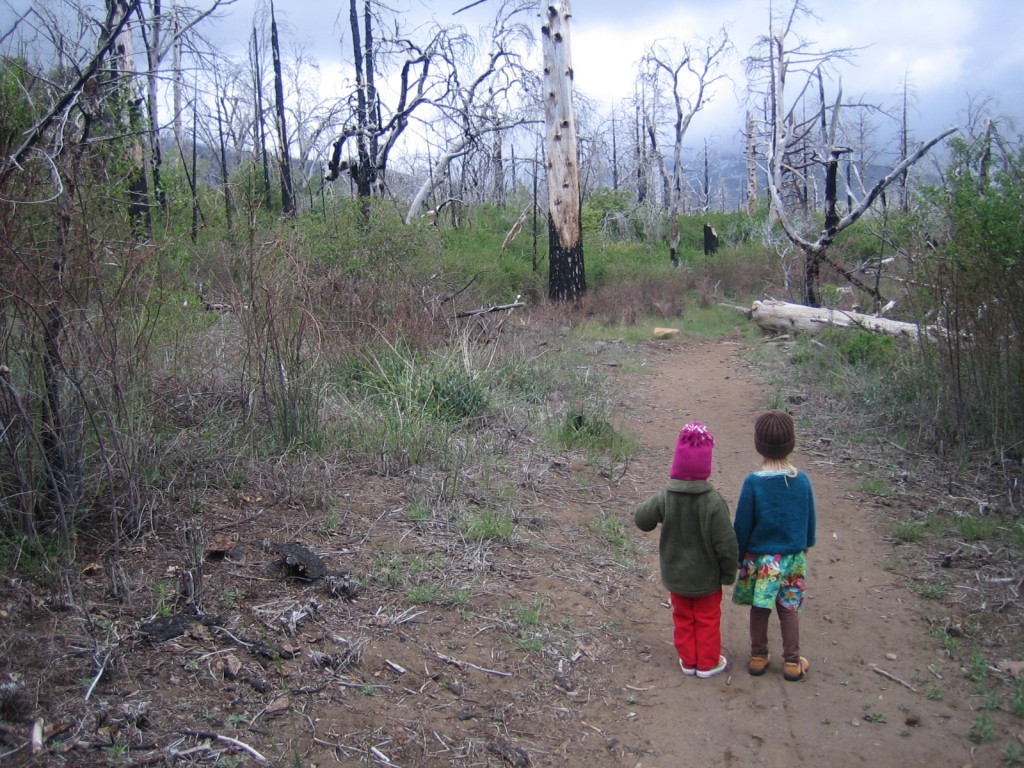Alright, I’ve been watching Survivors on BBC, and the Walking Dead, and I saw The Road a few weeks ago, so end-of-world scenarios are in my head. The more I see movie and TV shows try to tackle this big question the more I realize the that a civilization-ending plague or cataclysmic event is really about where we’ve come as a species and where we’ll go next. From warring tribes of monkey to plains-walkers to farmers to scientists, we’ve made steady progression away from hand-to-mouth living. Freed from the requirement to provide our own food and water we can pursue loftier intellectual pursuits. If that’s all taken away from us, how quickly will we rebuild? More importantly, what will we rebuild?
If the end comes, I imagine it’ll be a superflu or, even more likely, a massive computer and electrical outage. Sorry, zombie fans. Daily survival will change people, downgrade them back to animals. With our superior brains and inferior survival skills many will perish. The ones who survive might do so by fighting over dwindling existing resources, a society of ruthless scavengers like in Mad Max. But more likely there will pockets of people who choose not to fight, who remember our humanity. There will be communes where people do their own farming, skills and resources are shared, and the benefits of the rising popularity of urban homesteading will be seen. Thanks to all those who decided to bring back chickens into the suburbs. Thanks to the home bakers, the sewers, the knitters, the weavers. Thanks to the shade-tree mechanics, the hobby carpenters, the bee-keepers, the gardeners. These skills, while on the verge of dying out, are beginning to flourish again and whether it’s a mustachioed hipster who can brew his own beer or a natty-haired granola type who makes smoothies from his own garden’s vegetables, these are the people who will save civilization, who will be able to strike out as self-reliant when the world takes a sudden and devastating turn. But there will always be a need for security. There will always be a place for walls, weapons, and exclusion, because there will always be people who would rather steal and fight than make something for themselves. My vision of a self-sustaining commune sadly isn’t complete without high walls and guards. My neighborhood will become a fortified medieval village when the end times arrive. Some people will leave, others won’t pull their weight. But there are enough people in a neighborhood to pool resources and skills and make a life for everyone.
Fiction has lots of room for zombies and drama but little for the mundane realities of a world plunged back into the Middle Ages. Luckily we have a huge advantage over the Middle Ages: the benefit of a thousand years of advancement and science. Libraries will be key to rebuilding, provided people don’t empty them out for fire-starting materials. In the movies you rarely see the effort it takes to move on from scavenging.
What happens once the grocery stores are all looted, the pre-packaged foods have spoiled and turned to dust? What happens when electricity, water, sewage, trash, and security aren’t provided by our government any more? What happens if your job is simply to provide the big three to your loved ones: security, water, and food, in that order? What’s your post-apocalyptic plan?


Well, let’s see…I can knit, sew, design a garden, plant and maintain a garden, save seeds, I know how to can and cook. You can bake, design and build.
I should probably put together an emergency stash. Cans of food, dried food, water, hand-powered flashlights and radios, etc.